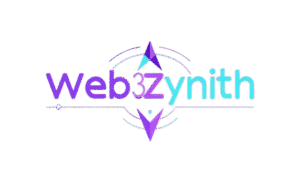Blockchain isn’t just a buzzword anymore—it’s a force that’s reshaping entire industries. At the heart of this revolution lies one of blockchain’s most powerful tools: smart contracts. These self-executing programs run on blockchain networks and execute automatically when predefined conditions are met, removing the need for intermediaries and reducing the chance of error or fraud.
While many people associate smart contracts with cryptocurrencies like Ethereum, their true potential extends far beyond the crypto space. In this article, we’ll explore how smart contracts are transforming traditional industries—from finance to real estate and beyond.
What Are Smart Contracts?
Smart contracts are digital agreements written in code, stored and executed on a blockchain. They trigger automatically when conditions are met, without the need for third parties (like lawyers or banks) to oversee the process.
Example:
A simple smart contract might say:
“If payment of $500 in ETH is received, then transfer the NFT artwork to the buyer.”
Because it runs on blockchain, this process is immutable, transparent, and trustless—all parties can verify the outcome, and no one can change it.
1. Finance: Automating Agreements and Cutting Costs
The financial industry has embraced smart contracts more than any other sector. Known as DeFi (Decentralized Finance), blockchain-based platforms use smart contracts to offer services like lending, borrowing, and trading—without traditional banks or brokers.
Examples:
- Lending protocols like Aave or Compound automate collateralized loans.
- Insurance smart contracts instantly pay claims if certain conditions (like flight delays) are met.
- Escrow contracts eliminate the need for third-party escrow services.
Impact:
- Lower transaction costs
- Faster settlements
- More accessible financial services for the unbanked
2. Real Estate: Streamlining Transactions
Buying or selling property is typically a complex, slow, and paperwork-heavy process. Smart contracts are changing that.
Use Cases:
- Tokenized property ownership: Real estate assets are turned into digital tokens, enabling fractional ownership.
- Automated sale contracts: Once payment is verified, ownership records are updated instantly on the blockchain.
- Rental agreements: Rent can be paid automatically, and access to property (e.g., digital locks) can be granted via smart contract.
Impact:
- Reduces fraud and legal disputes
- Cuts out unnecessary middlemen (brokers, notaries)
- Speeds up deal closure
3. Healthcare: Secure and Transparent Data Sharing
In healthcare, where data integrity, privacy, and access are critical, smart contracts offer a new approach.
Use Cases:
- Patient consent management: Smart contracts control who can access medical records and under what conditions.
- Supply chain tracking for pharmaceuticals: Ensures drugs are authentic and safely stored during transport.
- Insurance claims: Automated claim processing based on treatment data.
Impact:
- Enhanced data privacy and control
- Reduced fraud in billing and insurance
- Faster, more reliable care
4. Supply Chain: Transparency and Trust
Supply chains are notoriously complex, with multiple layers of suppliers, manufacturers, and logistics providers. Smart contracts simplify coordination and accountability.
Use Cases:
- Automated payments when goods are delivered or inspected.
- Tracking systems where each product update is verified and logged on the blockchain.
- Compliance assurance for fair trade or sustainability standards.
Impact:
- Real-time tracking and traceability
- Fewer disputes and bottlenecks
- Higher trust between parties
5. Entertainment & Media: Protecting Creators and IP
Artists, musicians, and content creators often lose out due to piracy, unclear ownership rights, or unfair royalty systems. Smart contracts can give creators more control and automatic revenue.
Use Cases:
- Royalty distribution: Revenue from plays or streams can be instantly and fairly split among creators.
- NFTs for ownership and access: Music, art, and videos can be tokenized, and ownership can be verified on-chain.
- Decentralized licensing: Usage rights are granted via smart contracts with predefined rules.
Impact:
- Fairer compensation for creators
- Instant payments
- New monetization models (e.g., fan ownership)
6. Legal Industry: Smart Legal Agreements
The legal world thrives on contracts and enforcement. Smart contracts allow for self-executing legal agreements, reducing the burden on courts and law firms.💡 Use Cases:
- Simple legal contracts like NDAs, employment terms, or service agreements
- Dispute resolution with coded arbitration procedures
- Automatic penalty enforcement (e.g., fines for late delivery)
Impact:
- Reduced legal overhead
- Fewer disputes
- Faster enforcement
Challenges and Limitations
Despite their promise, smart contracts aren’t without hurdles:
- Coding errors can be costly and hard to fix once deployed
- Legal recognition is still evolving in many countries
- Oracles (data feeds) must be trusted for off-chain information
- User accessibility and UX still need improvement
But with growing institutional interest and infrastructure (like Chainlink or Layer 2s), many of these challenges are being addressed.
The Future of Smart Contracts
As smart contracts become more secure, user-friendly, and legally recognized, we can expect to see:
- Enterprise adoption across banking, law, and supply chain
- Government services like voting or welfare distribution using smart contracts
- Interoperable ecosystems connecting different blockchains and platforms
The goal? A world where trust is built into the code, and people can interact directly—without relying on outdated or inefficient intermediaries.
Smart contracts are no longer a niche tool—they are reshaping how traditional industries operate. By automating trust, improving transparency, and reducing friction, they unlock new possibilities for businesses and individuals alike.
The revolution has already begun. The question now is: Will your industry adapt, or be left behind?




























We need to see them in more industries with immediate effect
Really cool to see smart contracts being useful in industries like healthcare
It’s amazing how they’re streamlining things like real estate and supply chains